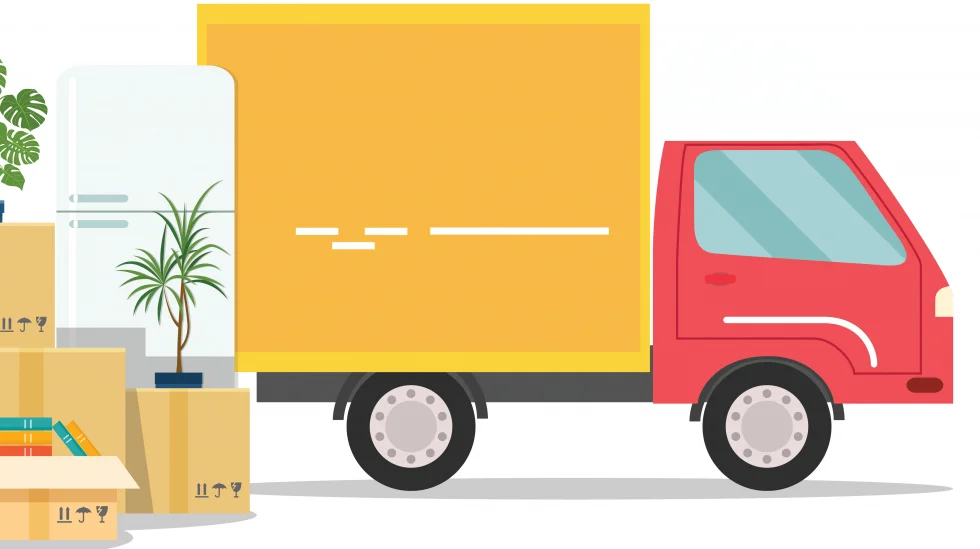Even before you start selling, donating or throwing away your belongings before moving to a new house, it helps to get rid of clutter. Having less stuff to move can save money and if you have the time, it can make packing a lot less stressful.
Not all of us can afford a professional organiser, so here are some decluttering tips to get you started. Remember, you don’t have to feel guilty for making the space in your home and mind to organise what doesn’t belong in your life any longer. There’s only so much room on the moving truck. Once you have moved house, let’s
make unpacking as clutter free as we can.
Declutter Your House: Getting Started
“Decluttering” can strike fear into the hearts of many. It can be an overwhelming task, which is why we let the stuff pile up in the first place. For some, deciding what to throw away and what to keep can be paralysing. The best way to start the process is to give yourself enough time to tackle it, and to look at one type of possession at
a time.
Memorabilia
Your memorabilia – that is, photographs, birthday cards, letters, holiday trinkets, collectables, etc. – should be in one place if it is not on display. This is handy not only for decluttering, but for easy access in case of a fire or other emergency.
Sorting through memorabilia can be difficult because we have an emotional attachment to these items. To start, make sure you have a box or garbage bag to put the unwanted items into. Sometimes out of sight means out of mind and you won’t be tempted to reconsider.
Questions to ask yourself when sorting memorabilia may include “Why do I hold onto this?”, “Is this something I can store digitally?”, “Is this replaceable?”, and “Would I offend someone if I got rid of it?”
Sentimentality can make us hold onto things we don’t actually need anymore. Some people have cardboard boxes of memorabilia they never look at. Even if you have room in your home for it, you will still be paying someone to move an extra box for no good reason.
These days, it’s easy to just take a photo of sentimental items for posterity, and most of the time you will forget you have that photo anyway.
Kitchenware copies
It happens to everyone. You open drawers and cupboards in your kitchen looking for something and come across several copies of something else. You think, “I really don’t need more than one of these”, but never get around to clearing them out.
The kitchen is a notorious place for multiplying items, from cutlery to utensils and baking supplies that you bought for that one time you made that specific cake. If you’re the last one moving out of a share house, there could be more forks in your kitchen than in a restaurant.
Contact your local charity store and ask if they accept kitchenware donations. Also, repurposing shops may be keen to collect your unwanted kitchenware. Just think, “What do I use and what am I likely to use again?” and then get rid of the rest.
Food
Week to week, month to month, it accumulates. The guilt of throwing away the ingredients that you had every intention of using keeps you from rummaging through the pantry and facing up to the food clutter in there.
Get a cardboard box ready and toss everything open and past its use by date. If you have time to be environmentally friendly, separate organic matter from packaging where you can. Don’t forget that there are bins at some supermarkets that will recycle soft plastics. Time the declutter day just after garbage pick up so you know you have room in the bins outside.
Also, be realistic. Will you ever use an ingredient ever again? Use this same mentality when clearing out the fridge. Be ruthless – it will save you space once you pack up the house and therefore money, too.
Decorations
Christmas, birthday parties, anniversaries – you may have gone all out and decorated the house for these occasions. You kept the decorations “just in case”. Now is the time to separate reality from fantasy. What have you already used again? Put that in one box, and then say goodbye to your good intentions.
Before you send unwanted decorations to landfill, consider selling the good stuff online. Beautiful baubles and untangled lights may find a new owner, or a friend may have young children who will appreciate the spirit you once filled your house up with.
Craft Supplies
Like the kitchen clutter, your desire to try to make something new can land you with a bunch of unopen or unused supplies. Time to collect any crafty items from around the house and sort the essential from the whims of your past self.
Call ahead and see if your local school, library, childcare or community centre is open for donations if you have useable leftovers. Maybe you can sell unopen packets online. Again, be realistic. What became a hobby and not just a one-off project?
Toys and books
This can be a tricky task if your kids are still attached to their toys, but you can make an event of it. Ask them which toys they have “graduated” from and which ones they play with most. They can make a formal ceremony out of saying goodbye to old friends and you can donate the toys to a charity if they still have all their limbs. If you’re lucky, the unwanted toys are broken, have no sentimental value and can go straight into the bin.
For books, you must be honest. Do you have a full bookshelf to look impressive or are you actually going to read them again? Sort through your books in stages. First, take out your all-time favourites. Then, the practical books you return to. Then, consider taking the rest to a secondhand bookshop, or donating to a willing library or charity. Books weigh your move down. Save money and cut the fat.
Documents
Time to collect all your personal documents from all the drawers around the house and consolidate the necessities. Consider buying a special storage solution for loose paperwork, certificates, passports and the like and file them away. Shred the rest and pop the waste into the recycling bin.
Clothes and shoes
Your local thrift store is typically happy to take unwanted fashion, but make sure it’s wearable and they know you’re coming. Some are even keen to take those extra buttons you have lying around off your hands.
Some clothing retailers have clothes recycling programs. Your local council may have some information on where to drop them off. At Rebel Sport Stores, there are Nike Reuse-A-Shoe recycling bins that will take your unwanted and unwearable treads.
Renovation Tools
If you have renovated the home you’re selling, you may have a shed full of tools you’ve only used once and will never use again. Try an online garage sale. Target people you know who are also challenging themselves to a home makeover.
Ask your local council what facilities they have for disposing paints and other chemicals you may have accumulated. Only hold onto the tools that you will need in your new house.
Gardening supplies
Get out into the shed and take stock of what you have. Bring everything out and start putting your accumulated gardening supplies into piles. One pile of stuff never opened and handy for the garden at the next home; another pile of unopened supplies to donate to the council, the local school, or anywhere else that has a gardening budget; piles of used tools and supplies that you can use again or donate; and a pile of rusty, dirty stuff to throw away.
Bathroom and Laundry
So you’ve gone through the living room and bedrooms, kitchen and shed. Don’t forget to declutter the bathroom and laundry room, too.
The medicine cabinet can accrue a chemist warehouse of goods – half used lotions and potions that get abandoned when the whim takes you to a new smell. Unfortunately, not many people want to buy bathroom accoutrement secondhand, so you will have to empty bottles and other packaging before recycling. In the laundry, a collection of shopping bags and old towels and other miscellanea may have made themselves at home, but before a move you will have to decide what’s worth keeping and what has had its day. Make sure to call your local council to dispose of any detergents and bleach safely.








